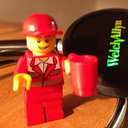Suicidal intoxication with potassium chlorate successfully treated with renal replacement therapy and extracorporeal liver support.
Mots clés
Abstrait
We present a case of a 22-year-old male who, in a suicide attempt, ingested approximately 200 g of potassium chlorate. Upon admission to the hospital, he presented in full respiratory failure with cyanosis. Methylene blue antidote was given but found to be ineffective. The patient was intubated and mechanical ventilation was initiated. Because of renal failure with anuria, intermittent haemodialysis (iHD) followed by continuous venovenous hemodiafiltration (CVVHDF) was performed. His hospital stay was also complicated by hemolysis, disseminated intravascular coagulation, and atrial fibrillation. Transfusions of packed red blood cells, platelets, and fresh frozen plasma were necessary to correct the deficits. He also developed liver failure and required two sessions of molecular adsorbent recirculating system (MARS) therapy. On day 14 of his hospitalization, he regained consciousness, as well as full respiratory and circulatory function. There are no controlled studies addressing management of potassium chlorate poisoning. We suggest that early renal replacement therapy should be strongly considered.


